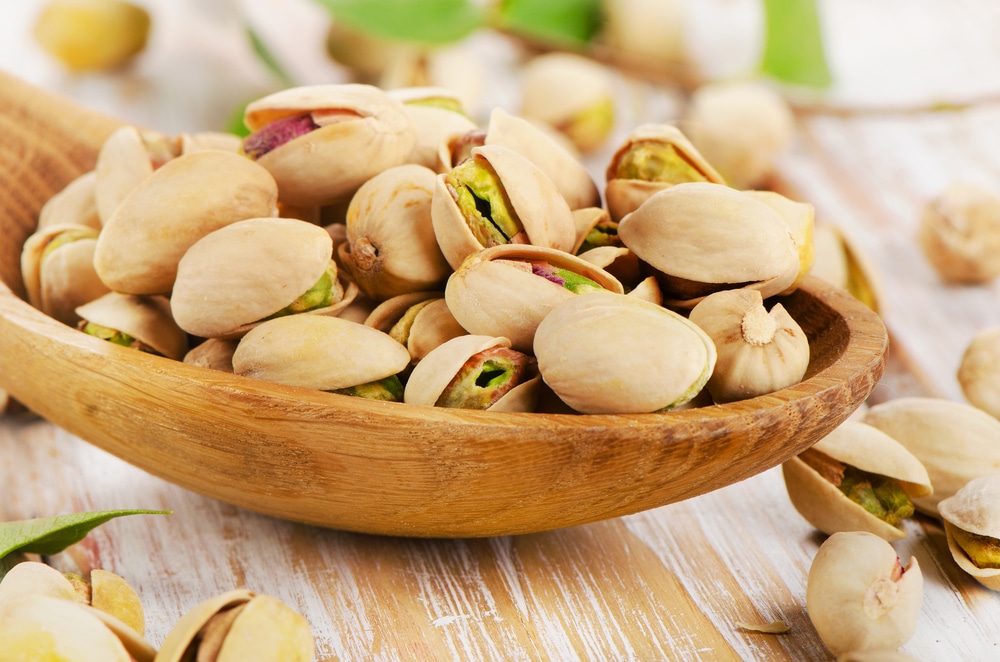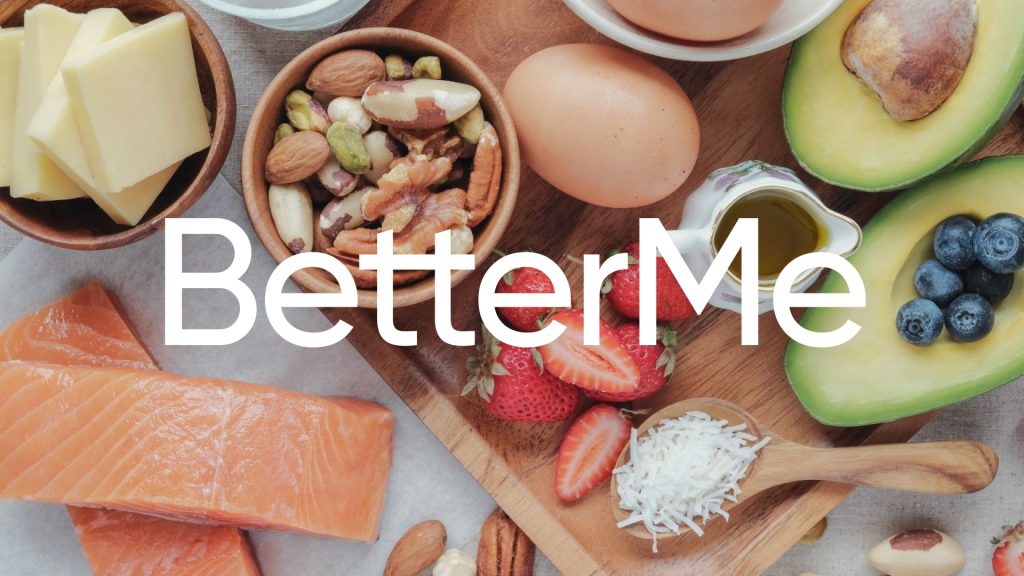Pistachios are a type of tree nut that is native to western Asia and the Middle East. These nuts have a green outer shell and a creamy, orange-colored inner flesh. Pistachios are often either eaten as a snack or added to desserts and salads. Like most nuts, they are often seen as detrimental to weight loss. This is because of their high-fat content and the tendency to overeat them. In reality, whether or not pistachios are good for weight loss really depends on how you consume them. They do have some health benefits that make them worth including in your diet, but at the same time, you need to watch your serving size if you want to stay healthy and lose weight. In this article we take a look at how pistachios can affect weight loss efforts and whether they are a good addition to a healthy diet.
Pistachios Nutrition Facts
If you’re trying to lose weight, one of the first things that you might do is check out a food’s nutritional information – especially fat content – before deciding if it’s okay to eat.
According to the USDA, 1 ounce of pistachios (about 49 pistachios) contain the following nutrients (5):
- Calories: 159
- Carbs: 8 grams
- Fiber: 3 grams
- Protein: 6 grams
- Fat: 13 grams (90% are unsaturated fats)
- Potassium: 6% of the Reference Daily Intake (RDI)
- Phosphorus: 11% of the RDI
- Vitamin B6: 28% of the RDI
- Thiamine: 21% of the RDI
- Copper: 41% of the RDI
- Manganese: 15% of the RDI
Fats
Pistachios are rich in unsaturated fat, which has been associated with weight loss and reduced risk of heart disease. Unsaturated fats can either be monounsaturated or polyunsaturated, and pistachios contain both types (90% of their total fat content is from unsaturated sources) (7).
Among the foods that have a high percentage of unsaturated fat, pistachios rank low on the glycemic index. The glycemic index ranks how quickly a food raises blood sugar levels after eating it. This is important for weight loss because foods that have a high glycemic index are more likely to cause weight gain (7).
In addition, research has shown that consuming monounsaturated and polyunsaturated fats (especially those found in pistachios) can help lower blood sugar and insulin levels. This can lead to reduced cravings and a decrease in the likelihood of overeating (7).
Read More: Peanuts Facts, Calories, Health Benefits And Side Effects
Fiber
Fiber is an essential nutrient that helps you prevent weight gain by keeping you full, long after you eat. Pistachios are a good source of fiber, with 3 grams in every 1-ounce serving (5).
Fiber is beneficial for weight loss because it slows down digestion and the absorption of nutrients from food. This helps you feel full, long after eating, which can help you eat less overall. In fact, one study found that participants who ate a high-fiber snack were able to eat significantly fewer calories for the rest of the day (10).
Protein
Eating enough protein is important for weight loss, as it can help you feel full and boost your metabolism. Pistachios are a good source of protein, with 6 grams in every 1-ounce serving (5).
Protein is beneficial for weight loss because it helps you maintain muscle mass while you’re dieting. When you lose weight, you can lose muscle mass as well as fat, which can stall your metabolism and make it harder to lose more weight. Protein can help prevent this from happening by providing the building blocks your muscles need to stay strong (1).
Pistachios Health Benefits
Weight loss isn’t the only benefit of eating pistachios – they have a number of other health benefits as well.
Improve Gut Health
Pistachios are a good source of fiber, which is beneficial for gut health. Fiber helps keep your digestive system regular, and can also reduce inflammation in the gut. This can be helpful if you’re struggling with conditions such as Crohn’s disease, irritable bowel syndrome (IBS), and leaky gut syndrome (7).
Improve Heart Health
Eating pistachios can help reduce your risk of heart disease by lowering your LDL cholesterol levels. Pistachio nuts are also a good source of vitamin B6, which is needed for the body to process homocysteine – an amino acid that can increase the risk of cardiovascular problems when in excess (7).
If you wish to cinch your waist, tone up your bat wings, blast away the muffin top – our fitness app was created to cater to all your needs! BetterMe won’t give excess weight a chance!
Enhance Cognitive Function
Eating pistachios can also help improve your cognitive functions. This is because they’re a good source of antioxidants, which protect the body from damage caused by free radicals. Pistachios also contain vitamin E, which is beneficial for the brain and can help delay the onset of age-related cognitive decline (9).
Reduce Cancer Risk
Pistachio nuts are high in antioxidants, which can also help lower your risk of cancer. Antioxidants such as vitamin C and E neutralize free radicals, reducing the risk of DNA damage that could potentially lead to cancer (7).
Good For Your Skin
Pistachios contain over 18 different vitamins and minerals, including vitamin A, which helps reduce acne and protect against sun damage. They also contain vitamin C, zinc, and selenium, which are all beneficial for the skin (7).
Can Help You Sleep
Pistachios can help you get more shut-eye at night by reducing stress levels. This is because they contain tryptophan, an amino acid that your body uses to make serotonin. Serotonin reduces anxiety and stress, which can help you relax and fall asleep better at night (8).
Read More: Pecans Vs. Walnuts: Facts, Calories, Health Benefits And Side Effects
Pistachios Side Effects
Excessive consumption of pistachios can cause a number of side effects, including (6):
- Diarrhea
- Bloating
- Gas
- Nausea
- Vomiting
- Stomach cramps
- Intestinal problems
- Allergic reactions
If you experience any of these side effects, stop eating pistachios and speak to your doctor.
The Bottom Line
So, are pistachios good for weight loss? The answer is yes – but only if you eat them in moderation. Enjoying a few servings here and there can help reduce your calorie intake and boost your health in a number of other ways. Just be sure to stick to reasonable serving size and avoid eating too many nuts in one sitting, as this can cause weight gain and side effects.
DISCLAIMER:
This article is intended for general informational purposes only and does not address individual circumstances. It is not a substitute for professional advice or help and should not be relied on to make decisions of any kind. Any action you take upon the information presented in this article is strictly at your own risk and responsibility!
SOURCES:
- Dietary Protein and Muscle Mass: Translating Science to Application and Health Benefit (2019, nih.gov)
- Effects of the DASH Diet and Sodium Intake on Bloating: Results for the DASH-Sodium Trial (2019, lww.com)
- How much sodium should I eat per day? (2021, heart.org)
- Nut intake and 5-year changes in body weight and obesity risk in adults: results from the EPIC-PANACEA study (2017, springer.com)
- Nuts, pistachio nuts, raw (2019, usda.gov)
- Pistachio nut allergy: An updated overview (2017, pubmed.gov)
- Pistachios for Health (2016, nih.gov)
- Pistachios May Calm Acute Stress Reaction (2007, sciencedaily.com)
- The beneficial effects of tree nuts on the aging brain (2012, iospress.com)
- The effect of fiber on satiety and food intake: a systematic review (2013, pubmed.gov)
- The role of dietary fat in obesity (1997, pubmed.gov)












